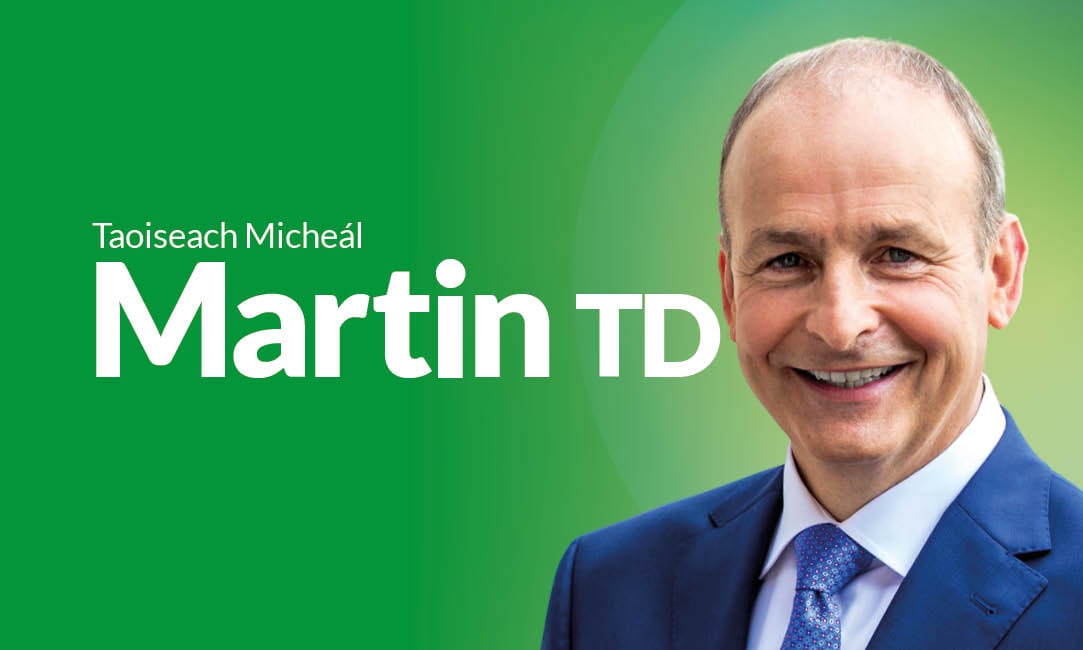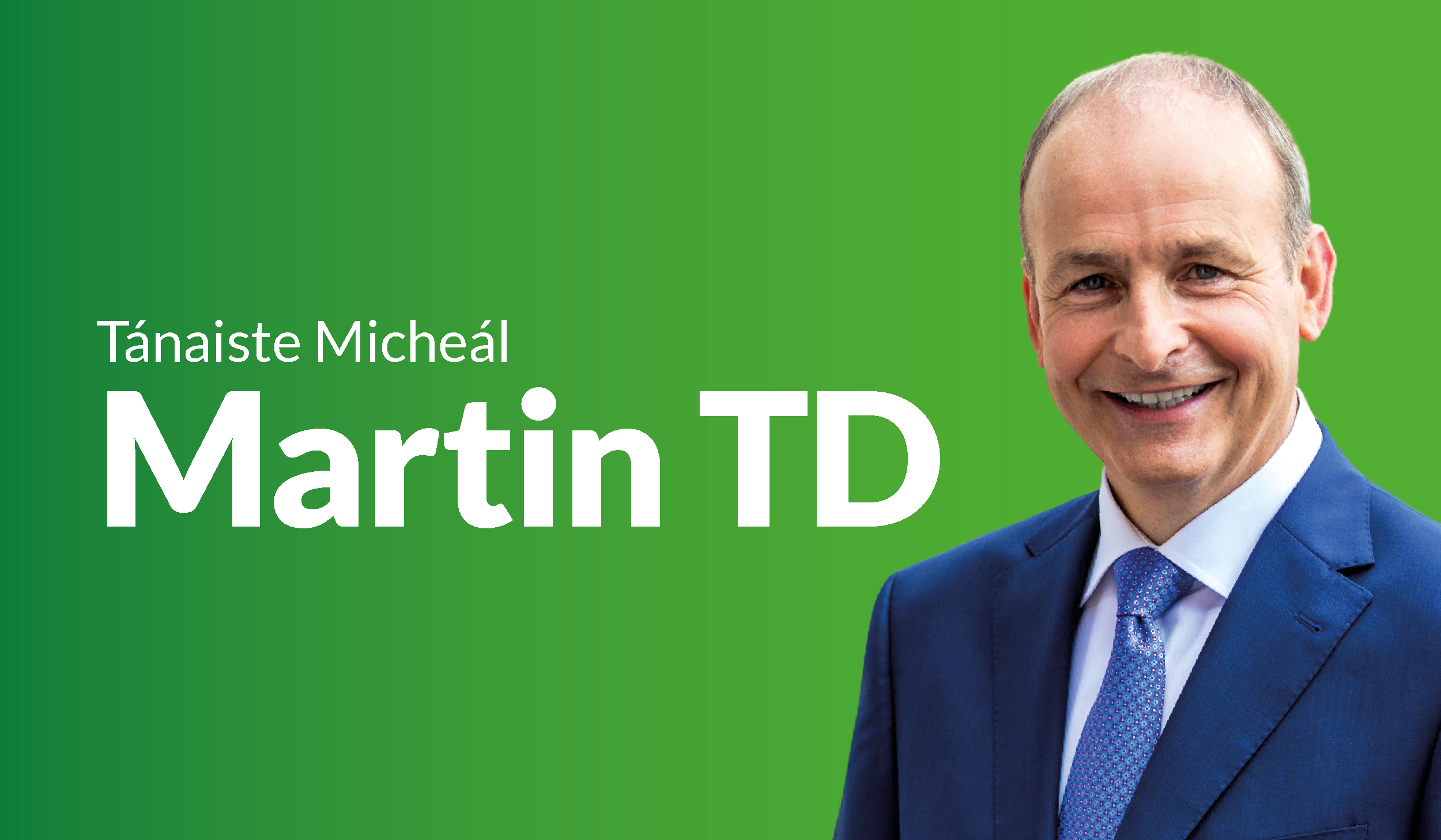Speech by Taoiseach Micheál Martin - State commemoration to mark 250th anniversary of birth of Daniel O’Connell Derrynane, Wednesday 6th August 2025
Published on: 06 August 2025
Is den bhfíorthábhacht é mar náisiún go dtapaímid an deis chun comóradh a dhéanamh ar laochra gus gluaiseachtaí a mhúnlaigh ár stair.
Táimid bailithe le chéile anseo inniu i gcuimhne ar fhear uasal a thug seirbhís den scoth do mhuintir na hÉireann agus a thug guth dóibh a bhí le cloisteáil ar an stáitse idirnáisiúnta.
By any measure, the lasting impact of Daniel O’Connell on our history and on the wider world make this proud son of Kerry one of the greatest Irish people ever to have lived.
On this day 250 years ago, O’Connell was born into a family which had many resources, but which was also part of a wider community defined by experiencing profound discrimination and dispossession.
Through an extraordinary life he campaigned for justice not simply for Ireland, but for all people.
He created the first mass democratic political movement the world had ever seen.
In words which resonated with growing force, he called for religious freedom, human rights and democracy in countless speeches and to crowds of previously unimagined scale.
And while his final great campaign for repeal did not succeed, he showed the spirit and determination of the Irish people to control their own destiny.
O’Connell does not represent simply a distant part of our history, he is an inspiring and still relevant beacon.
A figure who sought to unite the Irish people behind the shared values of solidarity and justice.
We need to do more to remember and respect the role of O’Connell in the story of the Irish people.
To understand O’Connell, you must begin with understanding that the foundation for everything which followed in his life came from his connection to this community.
He loved its language, its fields, its hills, its connection to the wide ocean and the intimacy of its isolation.
But most of all he loved its people, their many characters and their resilient spirit.
No matter where he travelled, or the eminence of those he met, to Daniel O’Connell nothing could match his pride in being from South Kerry and Ireland.
Ní raibh Daniel O' Connell ina náisiúntóir cultúrtha nua-aimseartha. Bhí sé dírithe ar smaointe polaitiúla thar aon rud eile. Ach bhí cultúr na háite seo agus teanga na ndaoine ina réalta eolais dó a mhúnlaigh é mar dhuine agus a threoraigh a shaol.
Aon uair a d'fhill sé ar Chiarraí, luigh sé isteach ar a theanga dhúchais a labhairt arís, an teanga a bhí ina thimpeall le linn a óige agus é ag fás aníos.
Agus é ag caint as Béarla, bhí sé ar cheann de na cainteoirí ba líofa dá raibh riamh ann sa saol poiblí.- ach bhí sé fréamhaithe agus múnlaithe sa Ghaeilge agus sa traidisiún Gaelach.
Ba í an Ghaeilge a thug an tuiscint dhoimhin dó ar dhóchais, uaillmhianta agus cultúr bríomhar a bhí ag formhór na ndaoine in Éirinn.Thug an Ghaeilge deis dó tuiscint a fháil agus comhbhá a léiriú do dhaoine ó na cúlraí éagsúla go léir. Thar aon ní eile,. ba í an Ghaeilge a chuir i gcuimhne dó nádúr na háite draíochta áille den scoth anseo.
O’Connell formed part of a generation which still looked primarily to Europe for its wider cultural and intellectual worldview.
As a fifteen year old boy, he left Ireland with his brother to attend secondary school in France. This was cut short by the growing violence of what became known as the Reign of Terror, but the two years he spent there confirmed his deep love of learning and his understanding of wider European ideas.
He read widely and was deeply committed to the principles of the liberal Enlightenment.
He stood out as a young man for his early and then life-long opposition to what he saw as the evils of capital punishment and slavery.
It was natural that the law would be his chosen calling.
He was trained in London and Dublin and became famous throughout Ireland for the passion and effectiveness of his advocacy.
Prevented by the penal laws from becoming a senior barrister, he nonetheless proved himself as the greatest lawyer of his times.
Throughout the country, he took up the cause of those facing arbitrary courts. He refused to be intimidated by the power of the crown. He gave hope to those long-used to being denied justice.
And so it was natural that he would take up the cause of Catholic Emancipation with all of the fire and determination he brought to his legal work.
As he grew older O’Connell became much more personally and deeply committed to his faith. But it would be a mistake to see him as simply campaigning for his own religion.
He believed that members of all religions and in all countries should have the right to fully participate in the professional and political life of the state. He was not looking for supremacy, but for equality and respect – and in order to achieve it he built an organisation the like of which the world had never before seen.
There had been many popular risings in world history, but there was no example of mass democratic political movement before.
He tirelessly toured the country, uniting people in a shared demand for Emancipation.
Through the Catholic Association he showed the government in London that the mass of the Irish people supported his cause – and he demonstrated in a dramatic way the political power that Catholics could exercise in elections.
Before O’Connell the approach had been for a handful of prominent Catholics to prepare a polite address to the King asking for relief.
O’Connell transformed this, showed the mass, popular demand of the Irish people for Emancipation.
After a steadily growing campaign, it was a demand which could no longer be resisted.
The Catholic Emancipation Act of 1829 was no small achievement. It resonated throughout the world and Daniel O’Connell was hailed as a hero by all who believed in liberty.
People looked to Ireland for inspiration about how to bring together oppressed people and to achieve dramatic breakthroughs.
There is no comparable example in our history of an Irish leader who had such international influence.
The story of O’Connell and Ireland was followed closely by newspapers and journals throughout the world.
Biographies of O’Connell were widely published and read during his life – including in Italy, France and Germany.
His objectives and methods led to the formation of many associations seeking religious liberty. While he was of course an inspiration to many Catholic communities who faced discrimination and repression around the world, he was also an icon for others, in particular the Jewish community of Europe.
And of course he was a leader and a symbol of hope for those who were campaigning for the abolition of slavery wherever it was to be found.
In his campaigns he refused to accept help from those who supported slavery, and he used every available platform to denounce it as a savage institution.
The great African-American abolitionist Frederick Douglas was inspired by his commitment to the cause and said of O’Connell that he stood in dramatic contrast to those who had “no sympathy for the cause of liberty outside their own”.
And it is in this that you find the core of O’Connell’s power – his solidarity across boundaries of religions and nations. His belief that all should benefit from the freedoms he sought for himself and his country.
No matter how high his star rose. No matter how acclaimed he was. His creed remained.
As he said,
“My sympathy is not confined to the narrow limits of my own green Ireland; my spirit walks abroad upon sea and land, and wherever there is oppression I hate the oppressor, and wherever the tyrant rears his head I will deal my bolts upon it, and wherever there is sorrow and suffering, there is my spirit to succour and relieve”.
His final great campaign for Repeal failed, but it demonstrated the clear will of the overwhelming majority of the Irish people to live in an Irish democracy.
Never again could anyone doubt the resolute national sentiments of the Irish people.
And the way that he campaigned, the organisation he built, the crowds who came to hear him, and the movements he inspired through the world resonated with such a power that the British Prime Minister Gladstone described him years later as “the greatest popular leader the world has ever known.”
O’Connell showed us a solidarity and inclusive nationalism which sees the strength, not a threat from robust, rules-based cooperation with other nations. Which embraces the uniqueness both of national identity and a shared European identity. Which sees the need to speak up for both the people of Ukraine and the people of Gaza.
At this tense moment in world affairs, where the values of democracy, human rights, religious freedom and the rule of law are being challenged the spirit of Daniel O’Connell is as important as it has ever been.
250 years after his birth it is an honour and a duty for us to gather here to remember the inspiring story of O’Connell’s struggle for the rights of all and solidarity between people and nations.
Inniu agus go brách, ná déanaimis dearmad ar Daniel O' Connell, an Fuascailteoir. is fíor cinnte don seanfhocal, ní bheidh a leithéid arís ann.
ENDS

